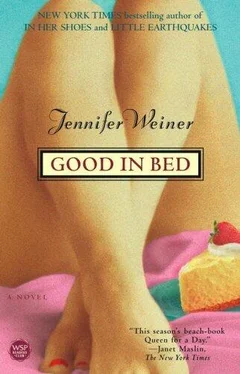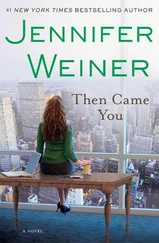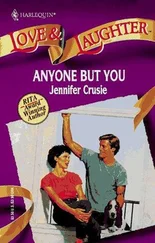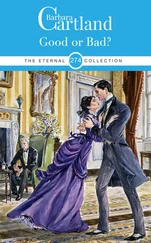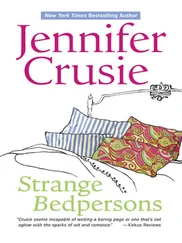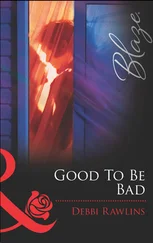I’m going to have a baby, I told him, and he nodded. Cannie, that’s wonderful!
I’m a newspaper reporter. I wrote a movie, I told him. I have friends. A dog. I live in the city.
My father smiled. I’m so proud of you.
I reached for him and he took my hand and held it. Why didn’t you say so before? I asked. It would have changed everything, if I’d just known you cared
He smiled at me, looking puzzled, like I’d stopped speaking English, or like he’d stopped understanding it. And when he took his hands away I opened mine and found a silver dollar in my palm. It’s yours, he said. You found it. You always did. You always could.
But even as he spoke he was turning away.
I want to ask you something, I said. He was at the door, like I remembered, his hand on the knob, but this time he turned and looked at me.
I stared at him, feeling my throat go dry, saying nothing.
How could you? is what I thought. How could you leave your own children? Lucy was just fifteen, and Josh was only nine. How could you do that; how could you walk away?
Tears slid down my face. My father walked back to me. He pulled a carefully folded handkerchief from his breast pocket, where he always kept them. It smelled like the cologne he always wore, like lemons, and the starch the Chinese laundry place put in, like they always did. Very carefully, my father bent down and wiped away my tears.
Then there was the darkness below me again, and the light above.
Sink or swim, I thought ruefully. And what if I wanted to sink? What was there to keep me afloat?
I thought of my father’s hand on my cheek, and I thought of the steady green-eyed gaze of the girl on the bed. I thought about what it felt to take a warm shower after a long bike ride, to slip into the ocean on a hot summer day. I thought about the taste of the tiny strawberries Maxi and I had found at the farmer’s market. I thought about my friends, and Nifkin. I thought about my own bed, lined with flannel sheets softened from many trips through the dryer, with a book on the pillow and Nifkin perched beside me. And I thought for a minute about Bruce… not about Bruce specifically, but the feeling of falling in love, of being loved, of being worthy. Treasured, I heard Maxi say.
So okay, I thought. Fine. I’ll swim. For myself, and for my daughter. For all the things I love, and everyone who loves me.
When I woke up again I heard voices.
“That doesn’t look right,” said one. “Are you sure it’s hanging the right way?”
My mother, I thought. Who else?
“What’s this yellow stuff?” demanded another voice – young, female, crabby. Lucy. “Probably pudding.”
“It’s not pudding,” I heard in a raspy growl. Tanya.
Then: “Lucy! Get your finger out of your sister’s lunch!”
“She’s not going to eat it,” Lucy said sulkily.
“I don’t know why they even brought food,” Tanya rumbled.
“Find some ginger ale,” said my mother. “And some ice cubes. They said she can have ice cubes when she wakes up.”
My mother leaned close. I could smell her – a combination of Chloe and sunscreen and Pert shampoo. “Cannie?” she murmured. I opened my eyes – for real this time – and saw that I wasn’t underwater, or in my old bedroom, or in my father’s office. I was in a hospital, in a bed. There was an IV taped to the back of my hand, a plastic bracelet with my name on it around my wrist, a semicircle of machines beeping and chirping around me. I lifted my head and saw down to my toes – no belly looming up between my face and my feet.
“Baby,” I said. My voice sounded strange and squeaky. Someone stepped out of the shadows. Bruce.
“Hey, Cannie,” he said, sounding sheepish, looking wretched, and horribly ashamed.
I waved him away with the hand that didn’t have a needle stuck in it. “Not you,” I said. “My baby.”
“I’ll get the doctor,” said my mother.
“No, let me,” said Tanya. The two of them looked at each other, then hustled out of the room as if by mutual agreement. Lucy shot me a quick unreadable look and dashed out behind them. Which left just me and Bruce.
“What happened?” I asked.
Bruce swallowed hard. “I think maybe the doctor better tell you that.”
Now I was starting to remember – the airport, the bathroom, his new girlfriend. Falling. And then blood.
I tried to sit up. Hands eased me back onto the bed.
“What happened?” I demanded, my voice spiraling toward hysteria. “Where am I? Where’s my baby? What happened?”
A face leaned into my line of sight – a doctor, no doubt, in a white coat with the obligatory stethoscope and plastic name tag.
“I see you’re awake!” he said heartily. I scowled at him. “Tell me your name,” he said.
I took a deep breath, suddenly aware that I was hurting. From my belly button on down it felt like I’d been torn open and sewn back together sloppily. My ankle throbbed in time with my heartbeat. “I’m Candace Shapiro,” I began, “and I was pregnant…” My voice caught in my throat. “What happened?” I begged. “Is my baby okay?”
The doctor cleared his throat. “You had what’s known as placenta abruptio,” he began. “Which means that your placenta separated from your uterus all at once. That’s what caused the bleeding… and the premature labor.”
“So my baby…,” I whispered.
The doctor looked somber.
“Your baby was in distress when they brought you in here. We did a cesarean section, but because we didn’t have the fetal monitor in place, we aren’t sure whether she was deprived of oxygen, and if so, for how long.”
He kept talking. Low birth weight. Premature. Underdeveloped lungs. Ventilator. NICU. He told me that my uterus was torn during the delivery, that I was bleeding so badly, they had to take “radical steps.” Radical as in my uterus was now gone. “We hate to have to do this to young women,” he said gravely, “but the circumstances left us no choice.”
He droned on and on about counseling, therapy, adoption, egg harvesting, and surrogates until I wanted to scream, to claw at his throat, to force him to give me the answer to the only question I cared about anymore. I looked at my mother, who bit her lip and looked away as I struggled to sit up. The doctor looked alarmed, and tried to ease me back down onto my back, but I wasn’t going. “My baby,” I said. “Is it a boy or girl?”
“A girl,” he said – reluctantly, I thought.
“Girl,” I repeated, and started to cry. My daughter, I thought, my poor daughter whom I couldn’t keep safe, not even on her way into the world. I looked at my mother, who’d come back and was leaning against the wall, blowing her nose. Bruce put his hand awkwardly on my arm.
“Cannie,” he said, “I’m sorry.”
“Get away from me,” I wept. “Just go.” I wiped my eyes, shoved my matted hair behind my ears, and looked at the doctor. “I want to see my baby.” They eased me into a wheelchair, sore and stitched up, hurting all over, and wheeled me to the Neonatal Intensive Care Unit. I couldn’t go in, they explained, but I could see her through the window. A nurse pointed her out. “There,” she said, gesturing.
I leaned so close my forehead pressed on the glass. She was so small. A wrinkled pink grapefruit. Limbs no bigger than my pinky, hands the size of my thumbnail, a head the size of a smallish nectarine. Tiny eyes squinched shut, a look of outrage on her face. A dusting of black fuzz on top of her head, a nondescript beige-ish hat on top of that. “She weighs almost three pounds,” the nurse who was pushing me said.
Baby, I whispered, and tapped my fingers against the windows, drumming a soft rhythm. She hadn’t been moving, but when I tapped she pinwheeled her arms. Waving at me, I imagined. Hi, baby, I said.
Читать дальше
